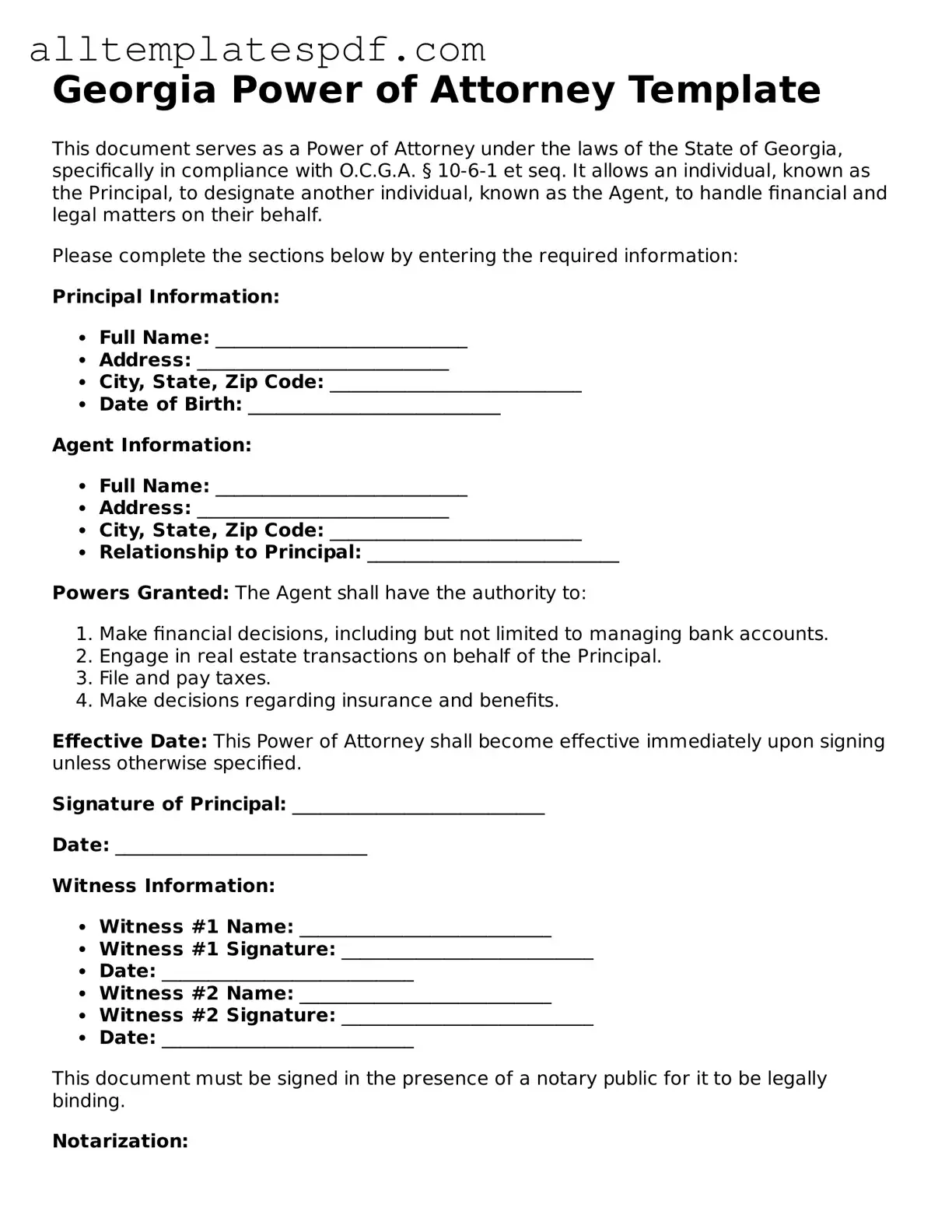Filling out a Power of Attorney (POA) form can be a daunting task. Many people make mistakes that can lead to complications down the road. Here are nine common errors to watch out for when completing the Georgia Power of Attorney form.
First, individuals often forget to specify the powers granted. A general POA may not cover specific needs. Clearly outlining the powers you wish to grant ensures that your agent can act effectively on your behalf.
Another frequent mistake is failing to sign the document properly. The principal must sign the POA in the presence of a notary public. Omitting this step can render the document invalid.
Additionally, people sometimes overlook the importance of choosing the right agent. Your agent should be someone you trust implicitly. Selecting someone who may not act in your best interest can lead to serious issues.
Some individuals neglect to date the form. A date is crucial as it indicates when the POA becomes effective. Without a date, there may be confusion regarding the validity of the document.
In some cases, people do not provide alternate agents. Life is unpredictable, and your first choice may not always be available. Designating a backup agent ensures that your wishes are still honored.
Another common error is failing to inform the agent about their responsibilities. Communication is key. Your agent should be fully aware of your expectations and the powers you are granting.
People often forget to review the form for errors before submission. Typos or incorrect information can create complications. Taking the time to double-check the details can prevent future problems.
Moreover, individuals sometimes ignore state-specific requirements. Each state has its own rules for POA forms. Familiarizing yourself with Georgia's specific requirements is essential for ensuring your document is valid.
Lastly, some may not consider the implications of a durable vs. non-durable POA. A durable POA remains effective even if you become incapacitated, while a non-durable one does not. Understanding the difference can impact your decision significantly.
By avoiding these common mistakes, you can ensure that your Power of Attorney form is completed correctly and serves its intended purpose.

